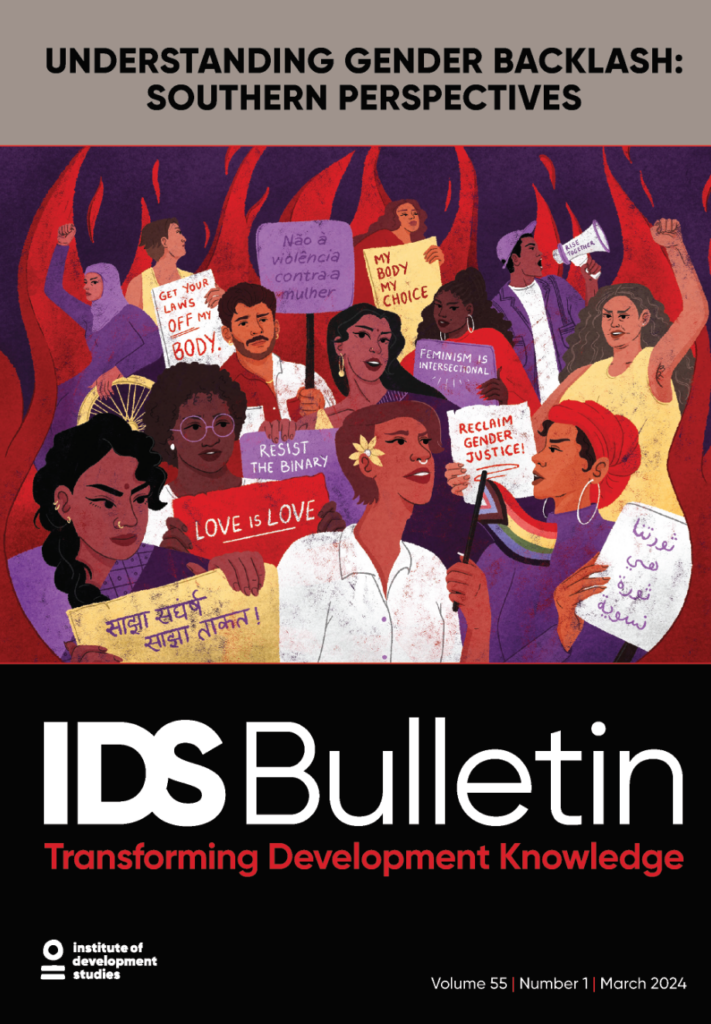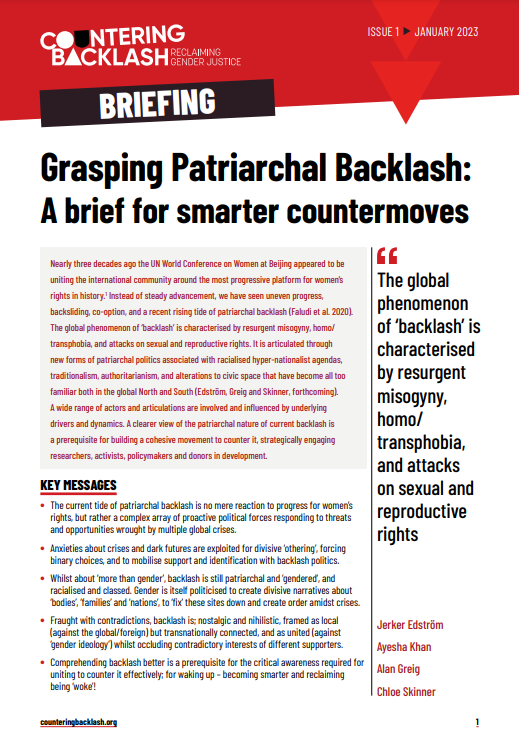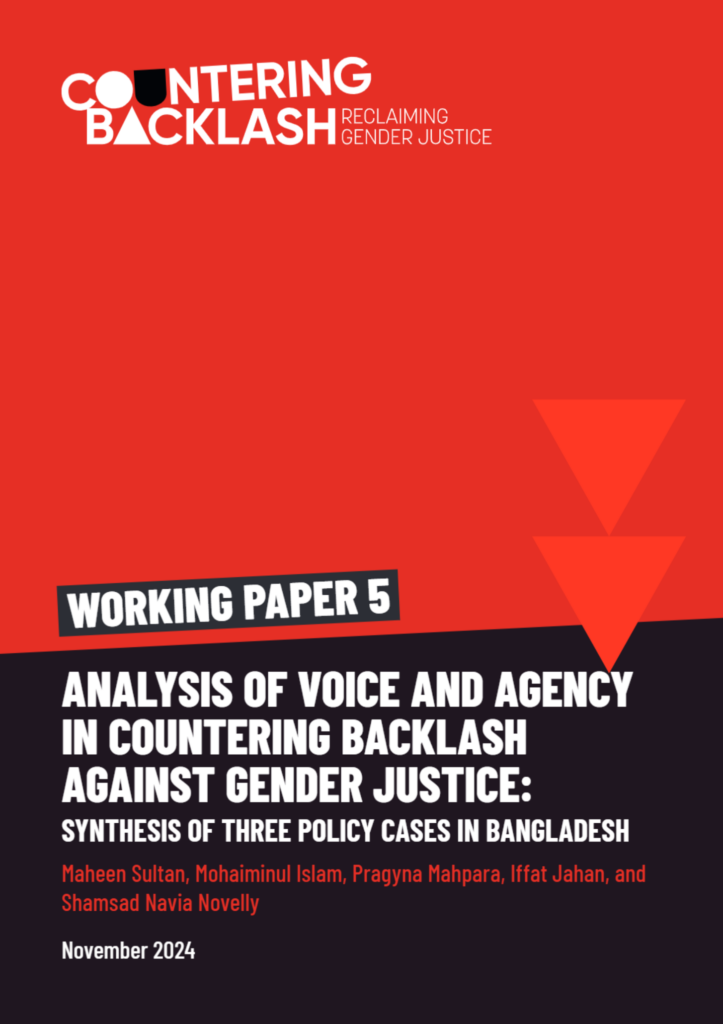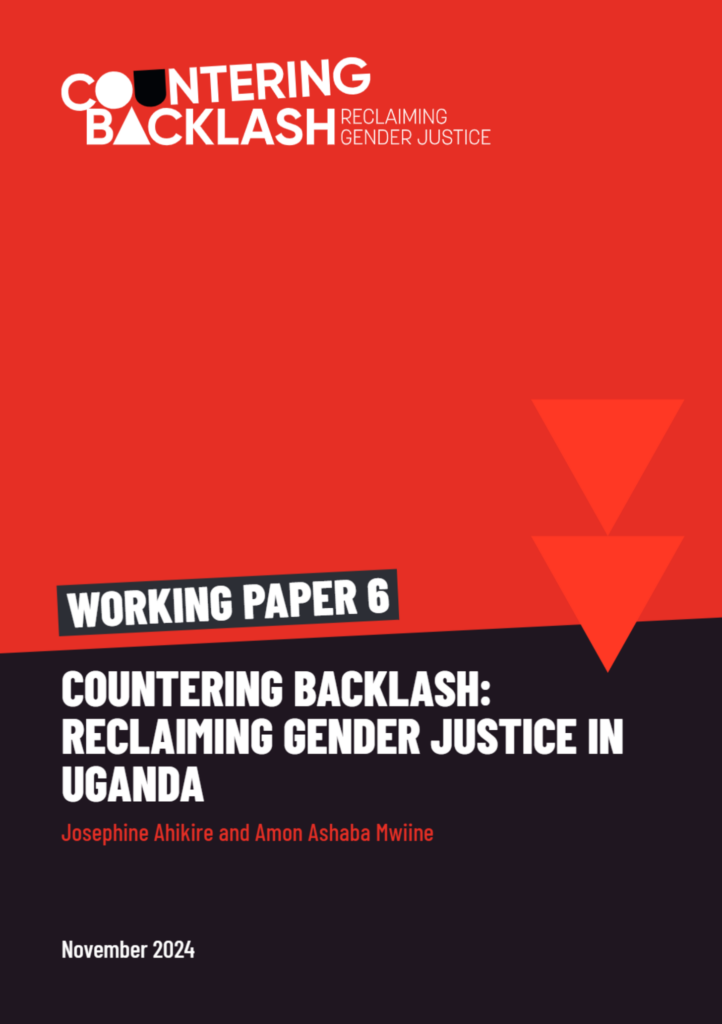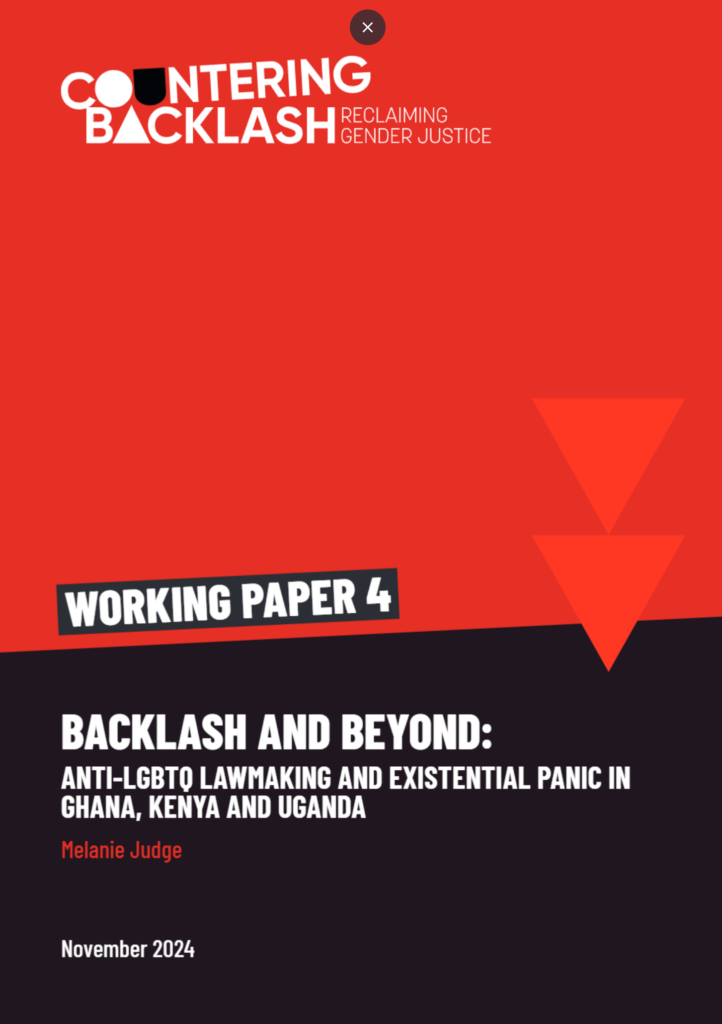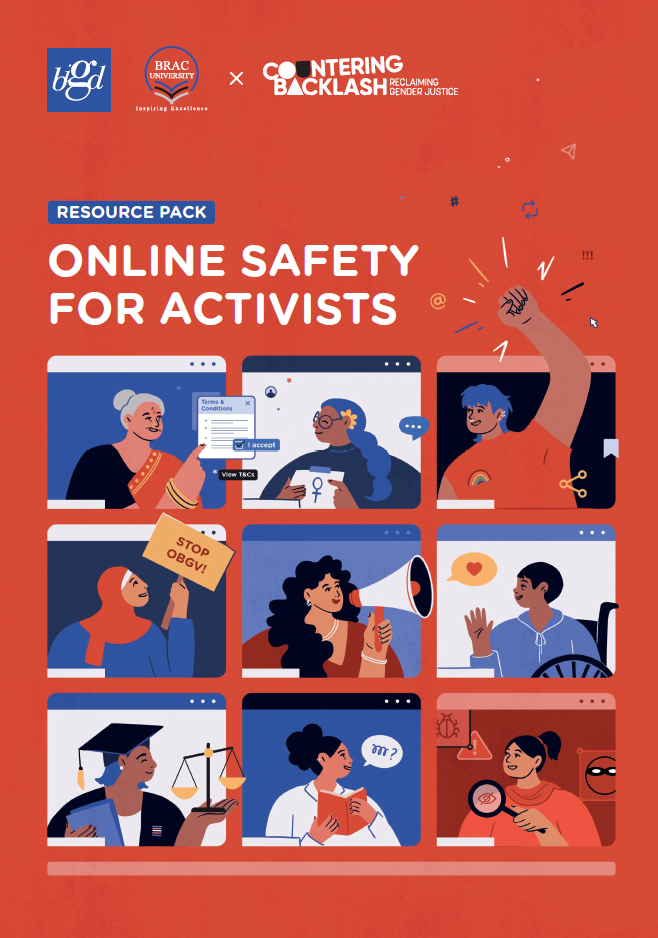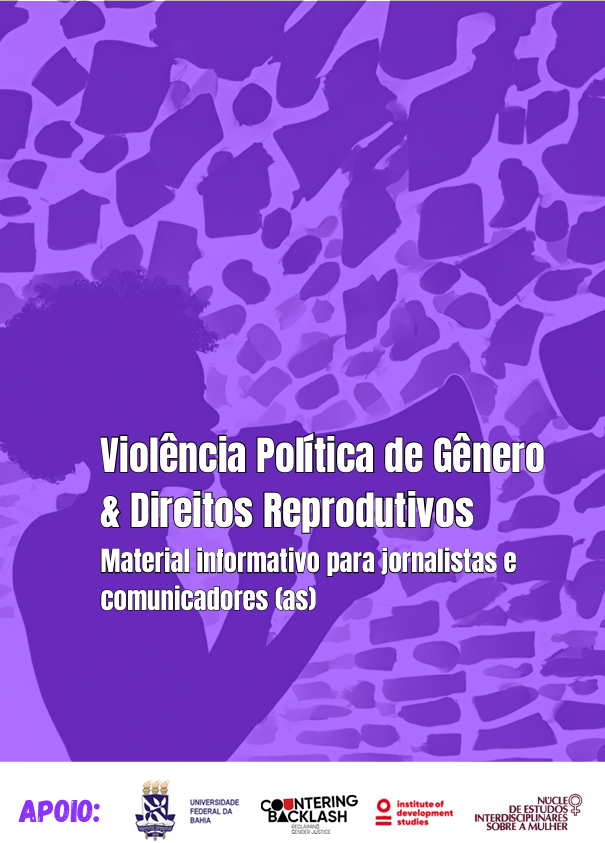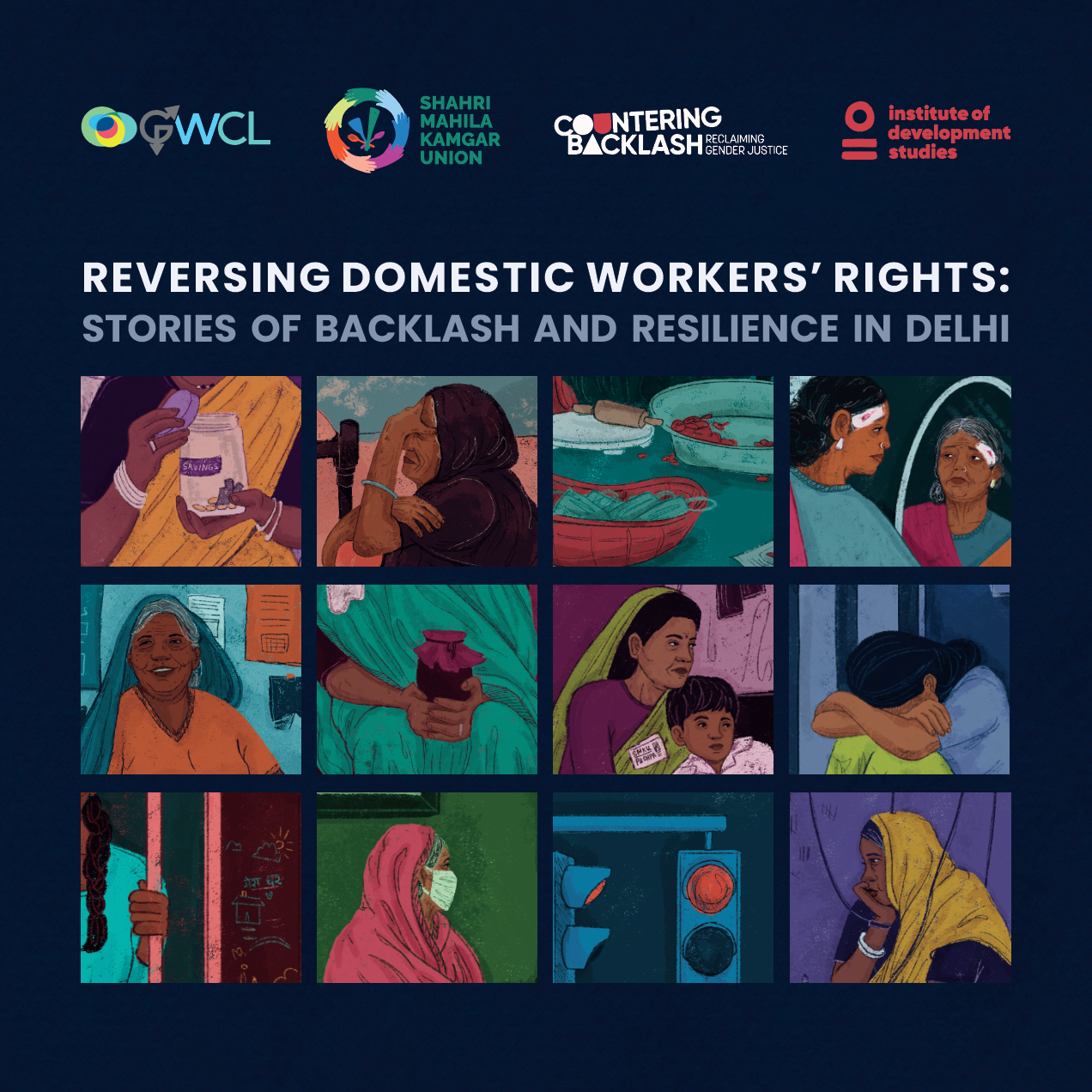The Countering Backlash programme is at AWID 2024! We’re excited to connect and share our research with fellow feminists, activists, researchers, NGOs, CSOs, and so many more people in Bangkok.
Here you can find helpful resources, toolkits, and the latest research from the Countering Backlash programme.
Latest research
Understanding Gender Backlash: Southern Perspectives
The Countering Backlash programme has produced timely research and analysis on gender backlash, presenting a range of perspectives and emerging evidence on backlash against gender justice and equality, as such phenomena manifest locally, nationally, and internationally.
‘Understanding Gender Backlash: Southern Perspectives’ is our iteration of the IDS Bulletin, including contributions, insights, expert knowledge from a range of actors in diverse locations across South Asia, Sub-Saharan Africa, Brazil, Lebanon and the UK – and all part of the Countering Backlash programme.
The IDS Bulletin addresses the urgent question of how we can better understand the recent swell of anti-gender backlash across different regions, exploring different types of actors, interests, narratives, and tactics for backlash in different places, policy areas, and processes.
Parnters: Advocates for Social Change Kenya (ADSOCK); BRAC Institute of Governance and Development (BIGD); BRAC James P Grant School of Public Health (BRAC-JPGSPH); Center for Basic Research (CBR); Centre for Health and Social Justice (CHSJ); Gender at Work Consulting – India; Institute of Development Studies; The Arab Institute for Women (AiW); Nucleus of Interdisciplinary Women’s Studies of the Federal University of Bahia (NEIM)
Grasping Patriarchal Backlash: A Brief for Smarter Countermoves
The global phenomenon of ‘backlash’ is characterised by resurgent misogyny, homo/transphobia, and attacks on sexual and reproductive rights. It is articulated through new forms of patriarchal politics associated with racialised hyper-nationalist agendas, traditionalism, authoritarianism, and alterations to civic space that have become all too familiar both in the global North and South. A wide range of actors and articulations are involved and influenced by underlying drivers and dynamics. A clearer view of the patriarchal nature of current backlash is a prerequisite for building a cohesive movement to counter it, strategically engaging researchers, activists, policymakers and donors in development.
Partner: Institute of Development Studies
This paper consolidates research conducted in Bangladesh on three policy cases to understand how gender justice movements formulate their demands on specific issues in response to the backlash they encounter from anti-rights actors.
The cases examined are: the formulation of the Domestic Violence Prevention and Protection Act (DVPPA), the Hindu Family Law Reform (HFLR) initiative, and online gender-based violence (OGBV).
Partner: BRAC Institute of Governance and Development (BIGD)
Countering Backlash: Reclaiming Gender Justice in Uganda
This report engages with the following questions that have been explored over a period of four years: What is backlash? What is the origin, nature and motive of gender backlash? What drives gender backlash? Do all efforts to achieve women’s rights, equality and justice experience backlash in similar ways? Does backlash differ for different categories of policy reforms? How do gender equity policy reform activists and policy makers use their voice to counter backlash against gender equality?
The report draws on three Ugandan policy cases – the affirmative action policy regarding women’s political participation, as entailed in the 1995 constitution; the Domestic Violence Act, 2010 (DVA); and the Sexual Offences Bill, 2019 (SOB) – to analyse the manifestation of gender backlash and the strategic efforts used by feminist activists and their alliances to counter this backlash.
Partner: Centre for Basic Research
Backlash and Beyond: Anti-LGBTQ Lawmaking and Existential Panic in Ghana, Kenya and Uganda
This paper is based on a discourse analysis of select anti-LGBTQ laws, draft laws and related parliamentary proceedings in 2023 in Ghana, Kenya and Uganda. This paper provides an account of the mechanisms and logics that underpin these laws and political discourse in these countries and reveals how efforts at expanded criminalisation seek to further regulate, police and constrain sex, sexuality, gender, family, and African subjectivities and nationhood.
Partner: Institute of Development Studies
Resource packs, toolkits, and more
Resource Pack: Online Safety For Activists
This resource pack aims to share knowledge and learning about online gender-based violence (OGBV). It provides a comprehensive list of strategies and existing protection mechanisms to create safety for online activists and others. Specifically, this resource pack has been created for online activists, users who promote gender justice on social media, and anyone interested in learning about OGBV and creating a safe digital space.
Partner: BRAC Institute of Governance and Development (BIGD)
Paradigm Shift: Countering Backlash Reclaiming Gender Justice
Advocates for Social Change – Kenya (ADSOCK) see victim blaming and ‘what-about-ism’ (‘but what about men and boys?’) around sexual and gender-based violence gaining ground in the country. The organisation’s resource book provides practical ways individuals and organisations can counter this backlash.
Partner: Advocates for Social Change – Kenya (ADSOCK)
Violência Política de Gênero & Direitos Reprodutivos
Em português: O material informativo para jornalistas e comunicadores/as sobre Violência Política de Gênero e Direitos Reprodutivos. A cartilha é resultado do curso de extensão realizado no âmbito do projeto de pesquisa “Combatendo a ocorrência, reivindicando justiça de gênero”.
In English: Informative material for journalists and communicators on gender-based political violence and reproductive rights. The booklet is the result of the extension course carried out within the scope of the research project “Combating occurrences, demanding gender justice”.
Partner: Nucleus of Interdisciplinary Women’s Studies of the Federal University of Bahia (NEIM)
Reversing Domestic Workers’ Rights: Stories of Backlash and Resilience in Delhi
This timely and important storybook shares 12 stories from domestic workers living in Delhi NCR, and the often-tragic tales of their lives. Most often, the terrible way domestic workers are treated by their employers and society is shaped around gendered backlash, and the blocking or dismantling any social and/or legal gains they may have. This is particularly pronounced for domestic workers who are Muslim, who, on top of the existing discrimination, face intense Islamophobia.
Partner: Gender at Work Consulting – India
This Chess – Shatranj or Chaturanga – workshop exercise can be played in various ways. You can play this as an exercise – or a series of exercises – in a workshop setting. You can also do it at home or at your desk, to aid thinking and research. To play, name your ‘players’/’pieces’, and discuss and explore how they contest to reshape the spaces/sites of ‘the body’, ‘the family’ and ‘the nation’. Then, identify what kinds of language, narratives and tactics these different types of anti-feminist actors use about bodies, families and nations – and put it into the squares.
Parnter: Institute for Development Studies
